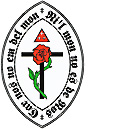The
Eglise Gnostique is a community that traces its roots from
antiquity through many ages, most recently via the Gnostic
revivals of the late 19th century; prior to that, via the
medieval Cathars and back to the classical gnostic schools,
and to the ancient church of the Apostles of Christ. We
are, therefore, as a community, part of the Church universal
(the body of Christ) which is not just a name or a building,
nor is it a mere denomination, for the real Church is where
all good Christians meet in justice and in truth.
We do not engage in proselyting, but hold to the principle that active discernment and the decisions of the individual are necessary marks for any true adherent to a spiritual tradition, and that coersion or force can never result in the experience of the gnosis of God. As such, our communities tend to be small, but we call to mind the promise of Christ who said, "For where there are two or three gathered together in my name, there am I in the midst of them."
The Eglise Gnostique is a community committed
to working together as a family, and as a family, our community
is open to a variety of individuals whose ages, cultures
and backgrounds can provide the spices that enliven discussions
and deepen our understandings of humanity.
The Eglise Gnostique exists to continue
the work of the Ancient Church in the Modern World, albeit
in keeping with the style of our forebears in the classical
gnostic schools, of the Friends of God (Cathars), of the
Christian Theosophists (Jacob Boëme, Johann Gichtel,
Louis-Claude de Saint-Martin), and of our 19th and early
20th century organizers (Raymond Bernard Fabré-Palaprat,
Jules Doinel, Louis Sophron Fugairon, Léonce Eugène
Fabre-des-Essarts, Gérard Encausse, Julien Houssaye,
Jean Bricaud, Constant Chevillon); in order to be available
to facilitate the liberation of the individual through understanding
the teachings of the Christ and of our tradition - being
both literal and symbolic, since both have import
for our completeness - and to maintain the principles and
practices of justice and truth passed down to us. |



